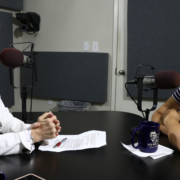Nearly 100 days into 2014, women finally earn what men earned in 2013 – National Consumers League
 By Michell K. McIntyre, Outreach Director, Labor and Worker Rights
By Michell K. McIntyre, Outreach Director, Labor and Worker Rights
“Today, women make up about half our workforce. But they still make 77 cents for every dollar a man earns. That is wrong, and in 2014, it’s an embarrassment. … It’s time to do away with workplace policies that belong in a ‘Mad Men’ episode.”
Today is the day we can start to put these words from President Obama during his State of the Union address into action. In a matter of hours, the U.S. Senate will vote on the Paycheck Fairness Act — a bill that would deter wage discrimination. Today, 98 days into 2014, is Equal Pay Day. This day symbolizes the extra time needed for women to earn the same salary as their male counterparts in 2013. The Paycheck Fairness Act would deter wage discrimination by updating the nearly 50-year-old Equal Pay Act, in part by barring retaliation against workers who disclose their own wages to coworkers.
It’s ridiculous, but right now, no federal law broadly prohibits employers from penalizing and even firing employees just for talking about their salaries. The wage gap does not only affect women, it affects whole families. At a time when women increasingly are the breadwinners, 71 percent of mothers are part of the labor force, a pay gap unfairly targets children in households with single mothers or where both parents work. The pay gap, when calculated over the course of a year, means women receive on average $10,784 less than males performing similar work.
The pay disparity is increased among African American women and Hispanic women, who make $19,575 and $23,873 less respectively than a white non-Hispanic male performing the same job. Using these figures, the Department of Labor estimates that women make on average $380,000 less over the course of their careers.
That is a huge sum of money when trying to put a child through college, buying healthy groceries for the dinner table, or paying the rent. Despite the passage of the Lilly Ledbetter Fair Pay Act, the first bill signed into law by President Obama in 2009, more work needs to be done to ensure women have the resources and tools they need to confront discrimination and challenge unfair practices in the courts.
Current law forces women to jump through too many hoops in order to make claims of gender discrimination. For Lilly Ledbetter, she was told on her first day of work at Goodyear never to discuss her salary with anyone. It wasn’t until she found an anonymous note in her locker years later that Lilly realized she was being paid as much as 40 percent less than her male colleagues in the same position. This is exactly why these pay-secrecy policies that punish employees and hide discrimination must go! It’s time to pass the Paycheck Fairness Act!
















